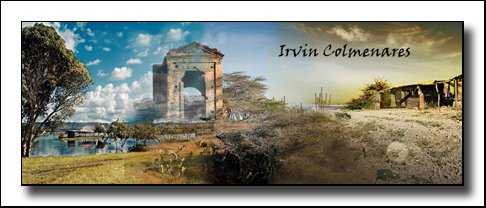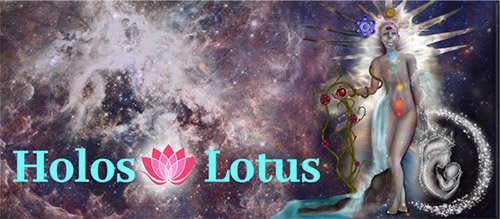Three Tune Tuesday | Creedence Clearwater Revival | [ESP/ENG]

Para el año sesenta y nueve andaba yo en los quince años, en ese entonces comenzaba a aficionarme por la música Rock, un género que se hacía popular gracias a la aparición de algunas emisoras de radio dedicadas a ese tipo de música.
A diferencia de ahora no existía nada como el internet que permitiera acceder a un contenido casi infinito. Nuestras posibilidades se limitaban a conocer y escuchar la música que ponían en la radio, y en mi ciudad solo cuatro o cinco emisoras tenían espacios dedicados al rock.
Sin embargo, la Caracas de aquellos tiempos, donde yo vivía, tenía una vida cultural muy intensa y había una gran movida musical. Era muy fácil encontrar sitios donde se presentaran grupos, en su mayoría tríos, formaciones básicas de bajo, batería y guitarra. Algunos de esos grupos se encargaban de versionar las canciones que más sonaban en la radio. Otros, hacían música de grupos desconocidos. Y los más atrevidos presentaban sus propias composiciones.
Ni mis amigos ni yo sabíamos nada de inglés, por lo que nos resultaba muy difícil saber de qué hablaban aquellas canciones.
Había pocas formas de acceder a una traducción. Una era cuando algún locutor hacía un programa especial en la radio donde hablaba en profundidad sobre un grupo y entonces traducía una que otra canción. La otra vía para conocer las letras era hacer un viaje hasta el centro de Caracas (Yo vivía en el Oeste) para comprar, en la librería Washington, especializada en textos en inglés, un ejemplar viejo de la revista Rolling Stone, donde siempre se incluía alguna letra. Luego entre todos hacíamos una traducción chapucera usando algún diccionario Larousse escolar.
Pero conocer la letra era lo de menos, diría que era irrelevante para nosotros. La música tiene un lenguaje propio que se conecta directamente con el sentimiento. Bastaba que el ritmo nos impactara, que alguna voz nos trasmitiera una emoción, para dejarnos seducir, disfrutar y amar esa música que a nuestros padres les resultaba muy extraña.
Por aquel tiempo aún no teníamos equipo de sonido en mi casa, solo escuchábamos la radio. Yo tenía una radio pequeñita que funcionaba con baterías y debía escucharla a bajo volumen para no molestar a mi madre. Ella no entendía cómo me podía gustar una música estridente, con tipos que gritaban y que de paso ni se sabía qué podían estar diciendo. Yo procuraba no contrariarla y trataba en lo posible de que el sonido no llegara a los oídos de ella.
Pero en ese diciembre del año sesenta y nueve pasó algo muy curioso. Estaba mi madre en la cocina y como siempre tenía la radio encendida. De pronto comenzó a sonar “Down at the corner” y ella en vez de cambiar el dial comenzó a golpear con el cuchillo la tabla de cortar donde estaba pelando unas papas. El ritmo se metió en su cuerpo y no paró de moverse hasta que terminó la pieza. Fue algo maravilloso ver a mi madre disfrutando con la música que tanto me criticaba. Aquella imagen se quedó en mi memoria para siempre…
Down at the corner, fue la primera canción que escuché del grupo Creedence, en nuestro país fue un gran éxito que repetían constantemente en la radio.
La canción habla sobre un músico que trata de hacerse conocer tocando en la esquina. Parte de la magia de la canción está en su gran intro, en los que el bajo y la percusión atrapan al oyente con un ritmo realmente pegajoso.
Las otros dos temas que comparto con ustedes son “Who'll Stop The Rain” y “Have You Ever Seen The Rain”, del año setenta. Ambas canciones tienen unas letras que se prestan a diferentes interpretaciones, fueron creadas en el contexto de la guerra de Vietnam, y hay quienes ven en ellas alusiones a ese conflicto.
Las dos canciones tienen un tono muy sentimental y en ellas podemos apreciar por qué Creedence fue una banda tan importante en la historia de la música popular. La potente voz de John Fogerty , los arreglos de guitarra y la rítmica fueron más que suficientes para conquistar el corazón y el oído de millones de personas.
Recuerdo que cuando escuché estas canciones por primera vez pensé que se trataban de temas de amor. Esa es la magia de la música, que a todos nos puede decir algo distinto…
Esta entrada la hago en el contexto de la iniciativa propuesta por el amigo @ablaze.
Gracias por tu tiempo.


By the year sixty-nine I was fifteen years old, at that time I was beginning to love Rock music, a genre that was becoming popular thanks to the appearance of some radio stations dedicated to this type of music.
Unlike now there was nothing like the internet that allowed access to an almost infinite content. Our possibilities were limited to knowing and listening to the music played on the radio, and in my city only four or five stations had spaces dedicated to rock.
However, the Caracas of those times, where I lived, had a very intense cultural life and there was a great musical scene. It was very easy to find places where groups would perform, mostly trios, basic formations of bass, drums and guitar. Some of these groups were in charge of covering the songs that were most played on the radio. Others played music by unknown groups. And the most daring ones presented their own compositions.
Neither my friends nor I knew any English, so it was very difficult for us to know what the songs were about.
There were few ways to access a translation. One was when an announcer would do a special program on the radio where he would talk in depth about a band and then translate a song or two. The other way to know the lyrics was to take a trip to downtown Caracas (I lived in the West) to buy an old copy of Rolling Stone magazine at the Washington bookstore, which specialized in English texts, where there were always some lyrics included. Then together we would make a sloppy translation using some Larousse school dictionary.
But knowing the lyrics was the least important thing, I would say it was irrelevant for us. Music has a language of its own that connects directly to the feeling. It was enough that the rhythm struck us, that some voice transmitted an emotion to us, to let us be seduced, enjoy and love that music that our parents found very strange.
At that time we still didn't have a sound system in my house, we only listened to the radio. I had a tiny battery-operated radio and I had to listen to it at a low volume so as not to disturb my mother. She didn't understand how I could like strident music, with guys shouting and who, by the way, I didn't even know what they were saying. I tried not to upset her and tried as much as possible not to let the sound reach her ears.
But in that December of the year sixty-nine something very curious happened. My mother was in the kitchen and as usual she had the radio on. Suddenly "Down at the Corner" began to play and instead of changing the dial she began to hit the cutting board where she was peeling potatoes with her knife. The rhythm got into her body and she didn't stop moving until she finished the piece. It was wonderful to see my mother enjoying the music she criticized me so much. That image stayed in my memory forever...
Down at the corner, was the first song I heard from the Creedence group, in our country it was a big hit that was constantly repeated on the radio.
The song talks about a musician who tries to make himself known by playing on the corner. Part of the magic of the song is in its great intro, in which the bass and percussion catch the listener with a really catchy rhythm.
The other two songs I share with you are "Who'll Stop The Rain" and "Have You Ever Seen The Rain" from the seventies. Both songs have lyrics that lend themselves to different interpretations, they were created in the context of the Vietnam War, and there are those who see in them allusions to that conflict.
Both songs have a very sentimental tone and in them we can appreciate why Creedence was such an important band in the history of popular music. John Fogerty's powerful voice, the guitar arrangements and the rhythm were more than enough to conquer the hearts and ears of millions of people.
I remember when I first heard these songs I thought they were love songs. That's the magic of music, that it can tell us all something different...
I'm making this post in the context of the initiative proposed by friend @ablaze.
Thanks for your time.
Translated with www.DeepL.com/Translator (free version)








Comunidad Be Entrepreneur

Para mis años de juventud, la agrupación Bee Gees: First of May y Melody Fair, fueron mis primeras melodías con el exterior, dejando a un lado la música con la cual nací «el joropo». Te cuento, que aún atesoro ese LP, lo conservo; pero no lo uso, ya que utilizo ahora los servicios digitales que me dan mejor fidelidad.
También escuche mucho de los Bee Gees, tenían grandes arreglos vocales. Muchas gracias por pasar y comentar estimado @amigoponc. Un fuerte abrazo desde Maracay.
He escuchado poco de esta banda, sin embargo lo poco que he escuchado me ha gustado. La canción "Have You Ever Seen The Rain" la he escuchado muchas veces y es muy buena ciertamente, aunque no sabía que hacía referencia a un músico que trataba de hacerse conocer tocando en la calle; aprendí algo nuevo. Excelente post!
Me alegra que te haya gustado la publicación. Este uno de esos grupos cuyas canciones escucho con mucho cariño, me recuerdan buenos tiempos. muchas gracias por pasar y comentar estimado @tomasguitar. Un fuerte abrazo desde Maracay.